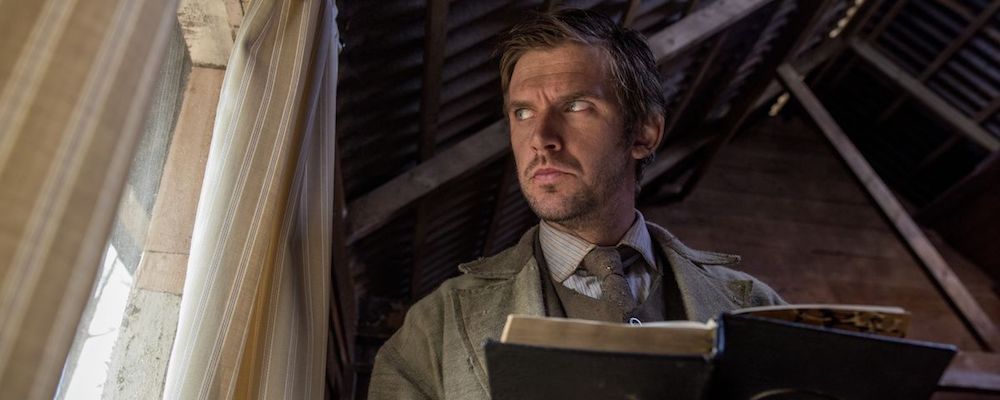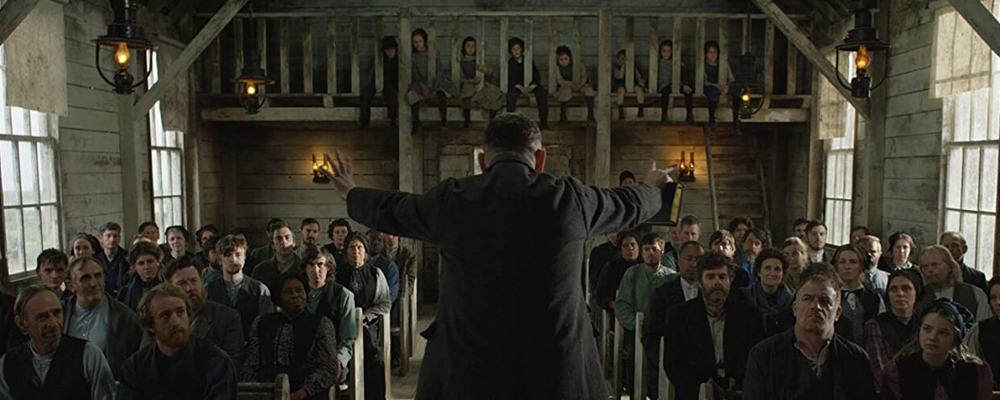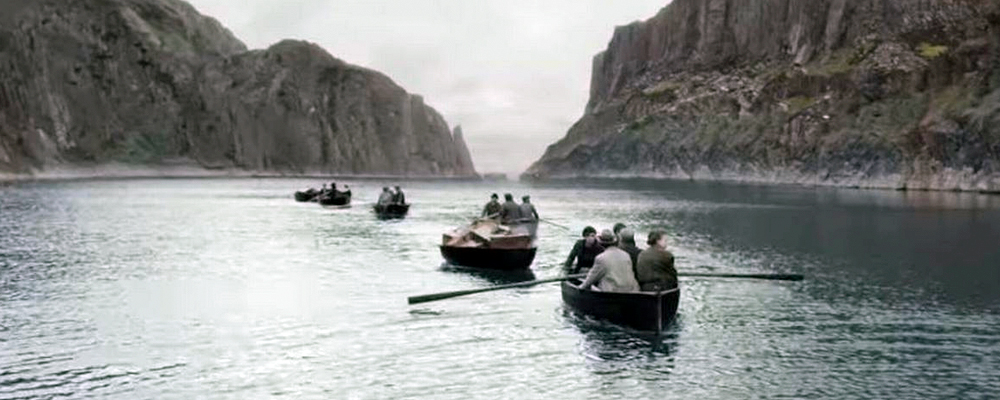Netflix’s ‘Apostle’ Combines Occult Mystery With Morbid Terrors
Alci Rengifo
“Apostle” is a great-looking mess of a thriller. It mixes cults, early 20th century British politics and gallons of gore with some memorable images. What it lacks in narrative focus it makes up for with visuals. Director Gareth Evans has already established himself as a cult director of visual flare, especially with “The Raid” films. With “Apostle” Evans admirably reaches for new territory, experimenting with the style of a rich period piece while infusing it with a ghoulish, horror film sensibility. The two approaches clash, but along the way he delivers some moments that are hard to forget.
It is 1905 and Thomas Richardson (Dan Stevens) returns to his wealthy family in London. He’s a prodigal son now seeking to make amends. But all is not well at home. His sister has been kidnapped by a radical cult based in an island off the British coast. They are holding her for ransom, demanding money in order to continue funding their attempts at establishing a utopia. Thomas decides to travel to the island, find the cult and hopefully bring back his sister. Once he arrives there what he finds is a strange, gritty commune run by a visionary “prophet” named Malcom (Michael Sheen). Malcolm and his right hand, the brutish Quinn (Mark Lewis Jones), were expelled from England years ago under charges of sedition against king and country. Now they run this community as an aspiring utopia, although men in black leather do patrol the streets with clubs, and no one is allowed to leave the premises at night after a specific time. At the moment the community is undergoing a crisis as crops refuse to flourish. As Thomas digs deeper into the strange happenings of this community, he discovers a terrifying supernatural secret.
“Apostle” truly succeeds in its look. This is a genre which is full of titles where the technical craft outshines a stale screenplay. Evans evokes the 19th century with gothic shades, mist and eeriness. The early scenes have a typical period film look as Thomas sits in his father’s lavish estate, learning about the fate of his sister. But once the movie transitions to the island then it becomes a visually alluring exercise. The island where Malcolm and his followers dwell has vast, green valleys under grey skies, rain is constant. It’s a rugged dystopia where men in black leather aprons patrol the alleys of the commune while Malcolm gives thunderous speeches inside the community’s sole chapel. Imagine a group of Amish or primitive Anabaptists losing their minds and you get a sense of the world Evans has imagined. The art direction hits its peak in a strange chamber where Malcolm has captured a strange witch or goddess who he has entangled in endless streams of roots. A nameless servant, a sort of zombie-like figure with his head wrapped in some kind of mask made of ropes or roots, wanders around and has a grinder to literally grind victims into a bloody mess to then feed the captured woman.
Goddesses? Entangled witches? Indeed, this is where “Apostle” gets so weird it refuses to offer any logical explanations. What begins as a semi-detective story about Thomas seeking his sister within a cult, which is interesting enough, suddenly swerves into a bizarre narrative about Malcolm having to feed blood continuously to this captured old woman to make the local wildlife grow. In a small flashback we learn that when Malcolm and Quinn first landed on the island they came across the woman, alone by a tree. The idea is apparently that the men then took her prisoner and forced her to drink a lot of blood to give them good land to farm. What this woman is, where did she come from, how it is that she can control nature but is captured by two shaggy Englishmen are mysteries Evans never bothers to explain with his screenplay. Some shots look borrowed from Darren Aronofsky’s environmentalist parable “Mother,” in particular when blood is forced down a funnel into the captured woman and the roots begin to sprout vegetation. But Aronofsky’s surrealist opus, even when it becomes quite whacky, still has some clarity. Evans in this horror story never seems to know what he wants to say. He just likes the way certain ideas look.
In all fairness there are some good moments of morbid suspense. In one scene Thomas has to crawl his way through a disgusting underground tunnel where the water is invested with blood and floating animal parts. Another scene has him almost turned into grinded gore by the masked servant. Evans delights in some fantastic makeup effects when people get sliced open, cut up or shot. A monarchist assassin tries to kill Malcolm and is run through by several spears. A framed traitor is tied to a medieval-style torture table with hooded men looking on as Quinn drills a hole into the poor guy’s skull. These moments work individually because Evans has a good eye for combining suspense with anatomical horror.
But “Apostle” gets wound up in a script that tries to cram too much into what could have been a very simple, engaging thriller. There are subplots involving Quinn’s jealousies towards Malcolm, Thomas’s attraction to Malcolm’s daughter Andrea (Lucy Boynton) and the tied up nature witch who can’t seem to escape even though she can control nature itself. The central theme of Thomas searching for his sister gets lost in the shuffle.
Premiering on Netflix, “Apostle” might be good to give a look simply for its design. Visually it’s quite admirable. It never looks dull, even when we’re left with more questions than scares.
“Apostle” premieres Oct. 12 on Netflix and in select theaters.



